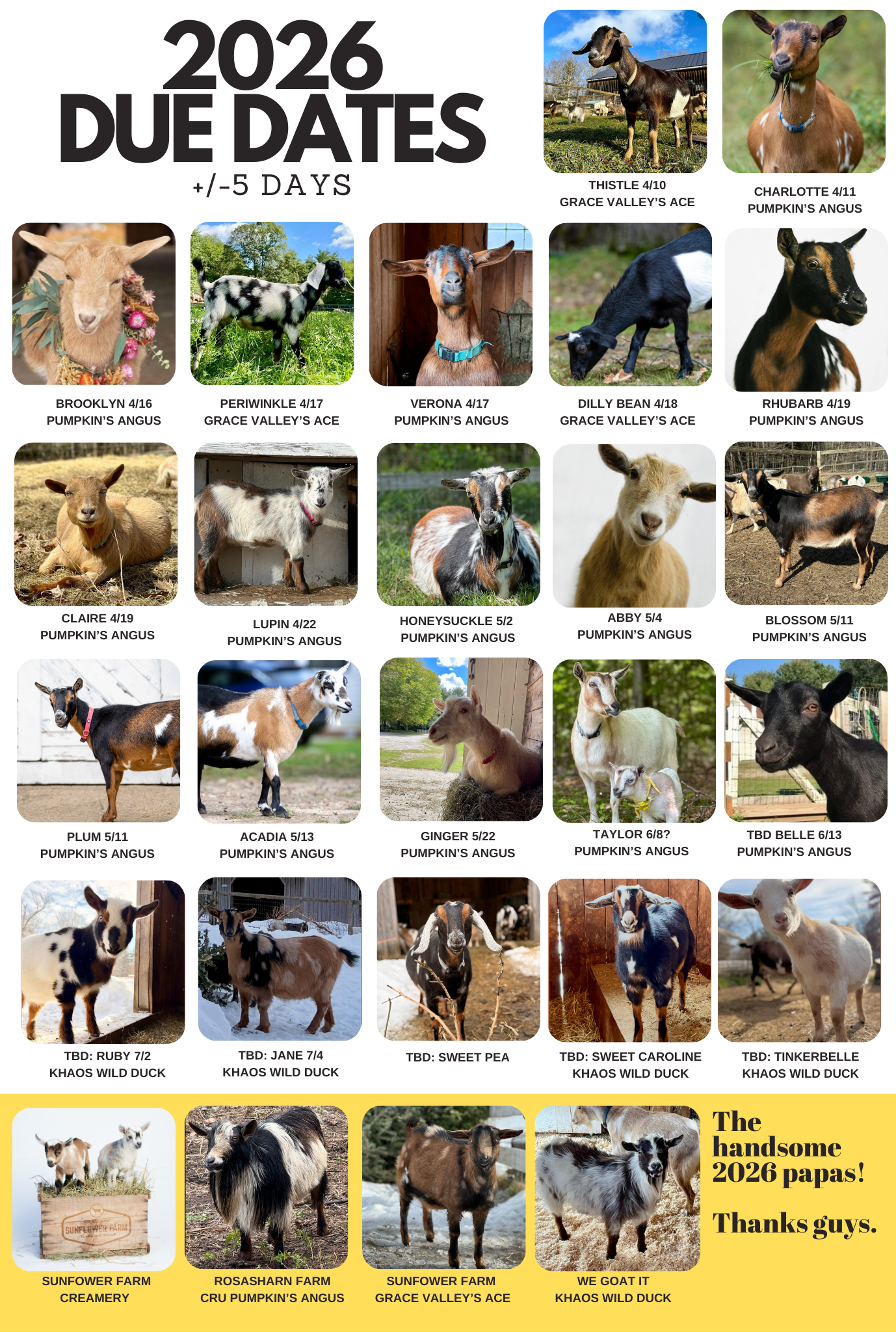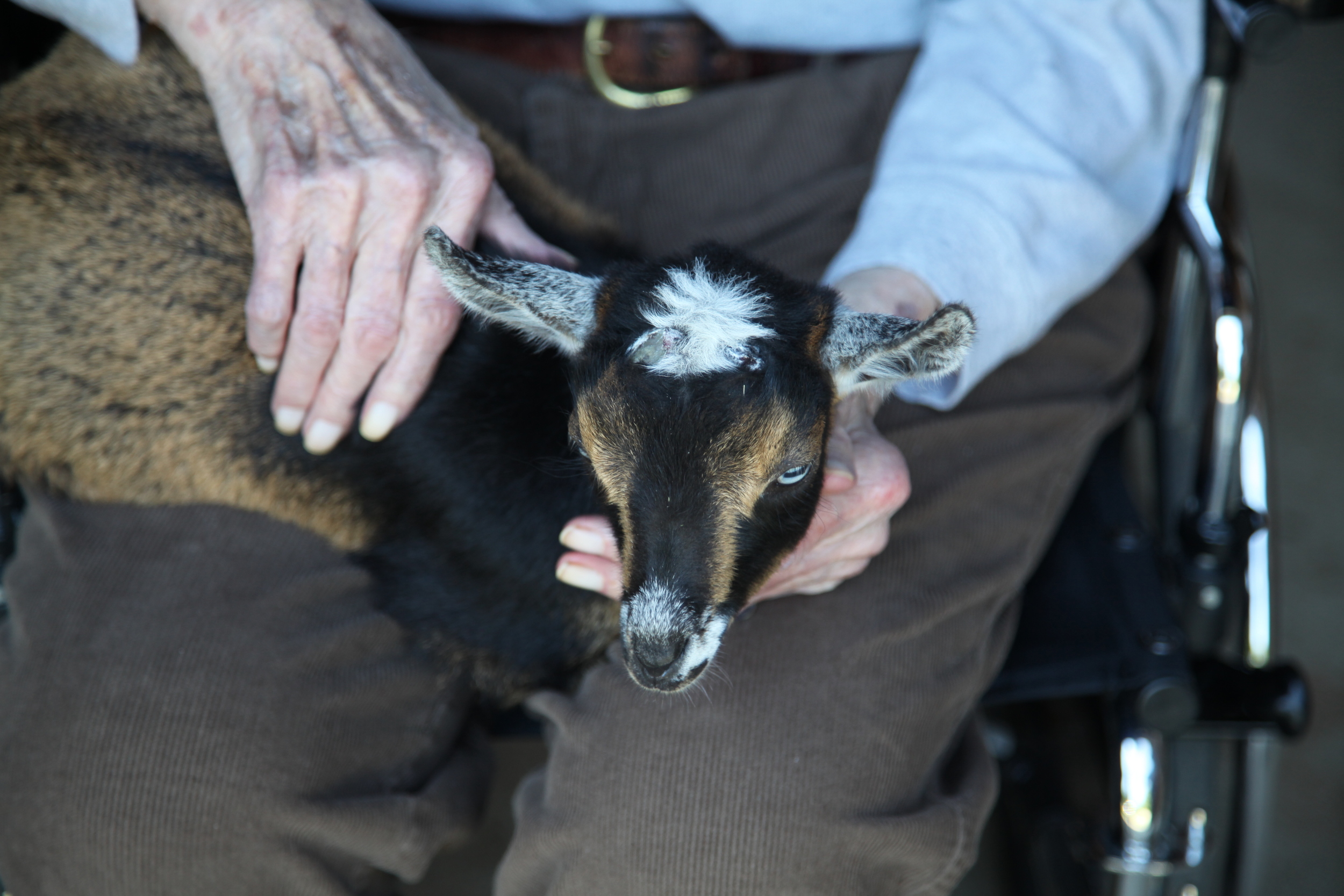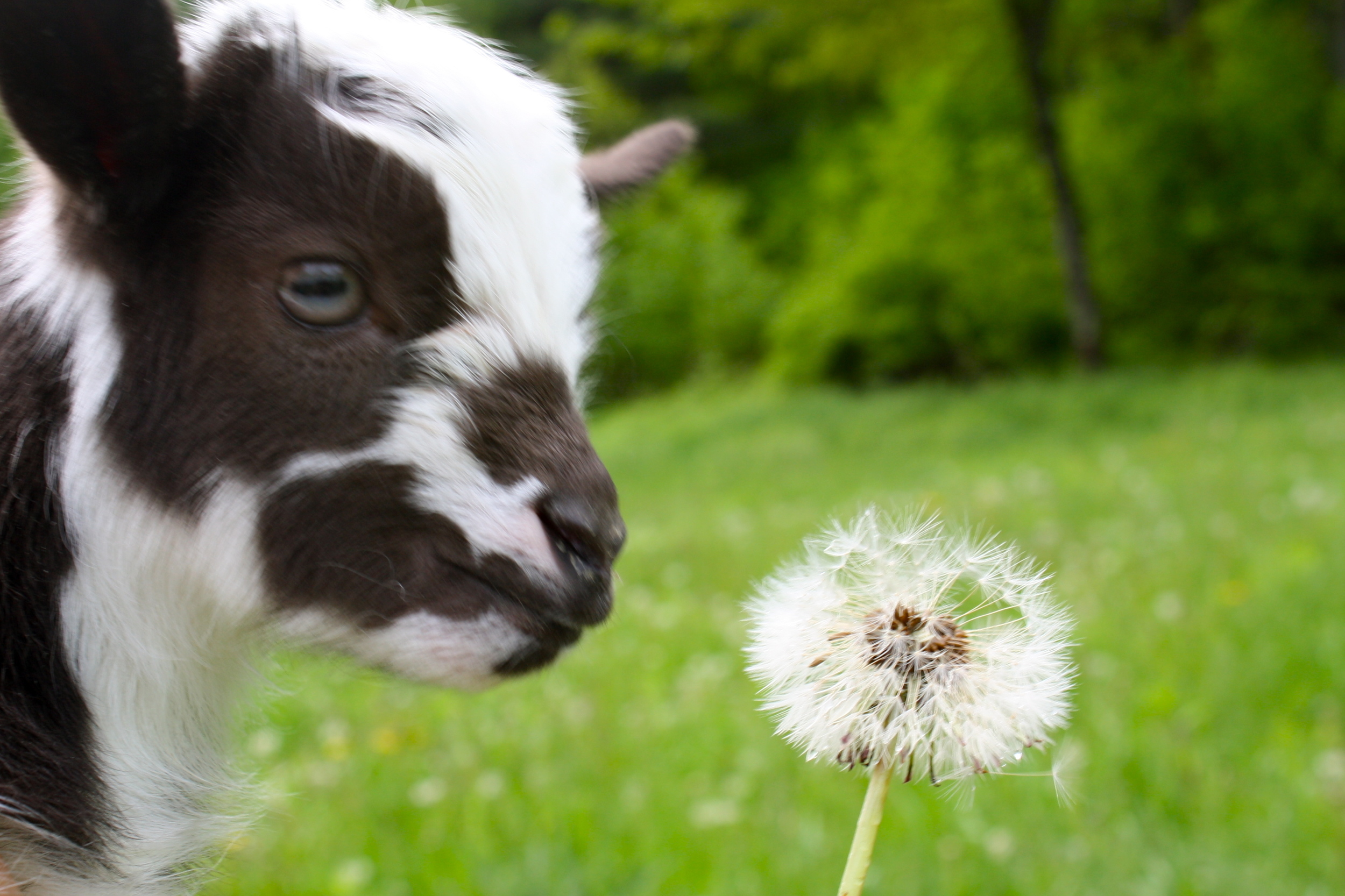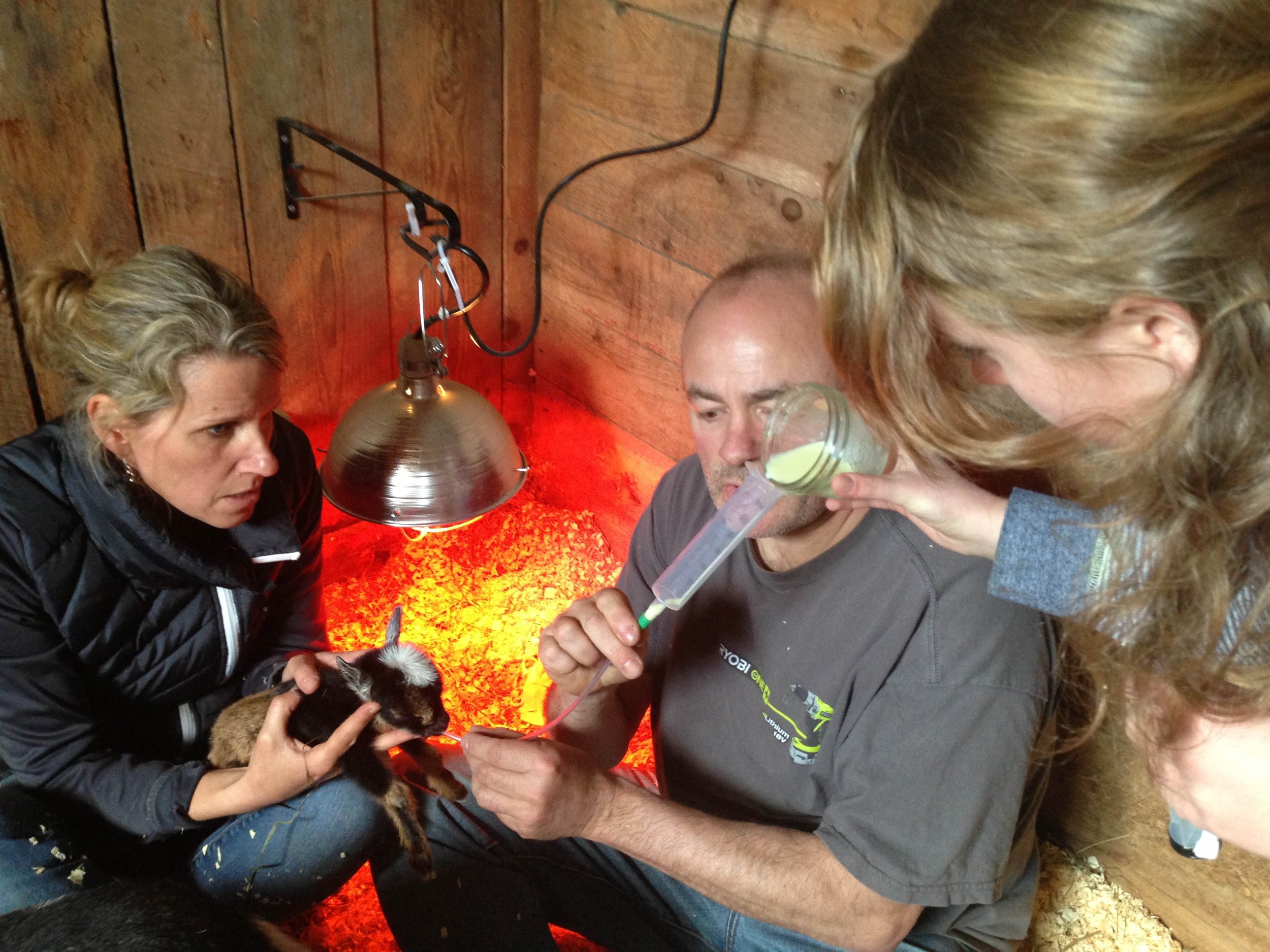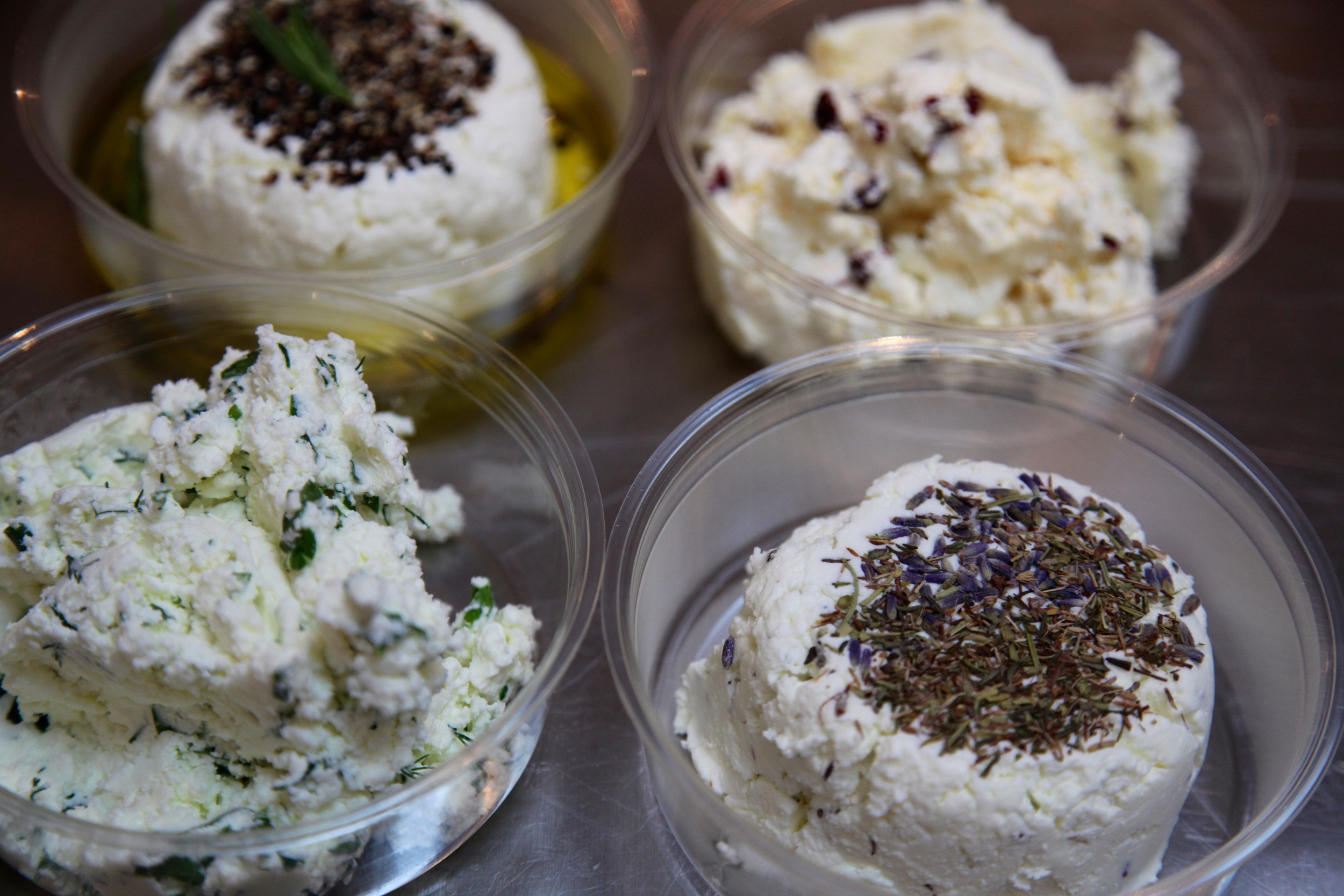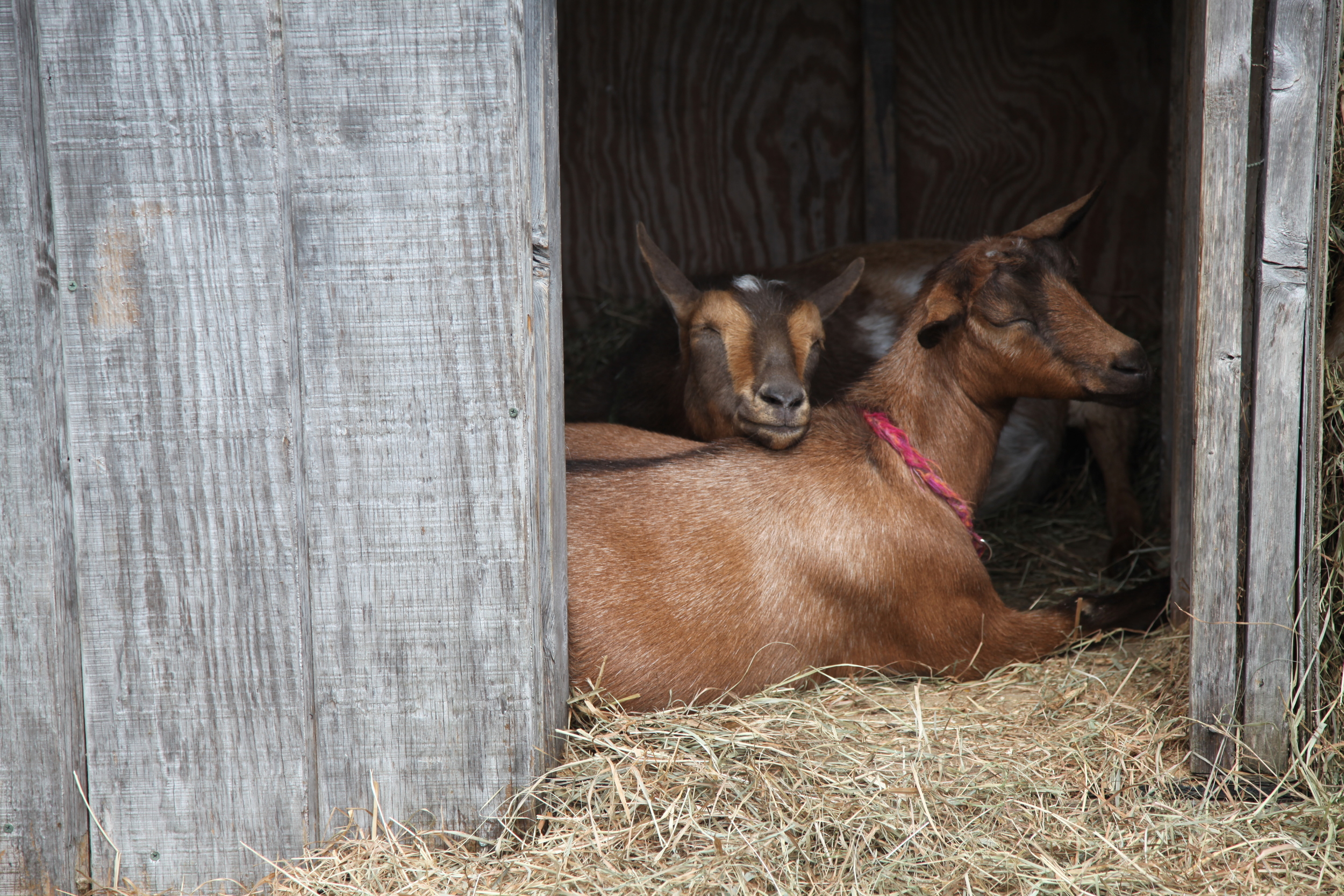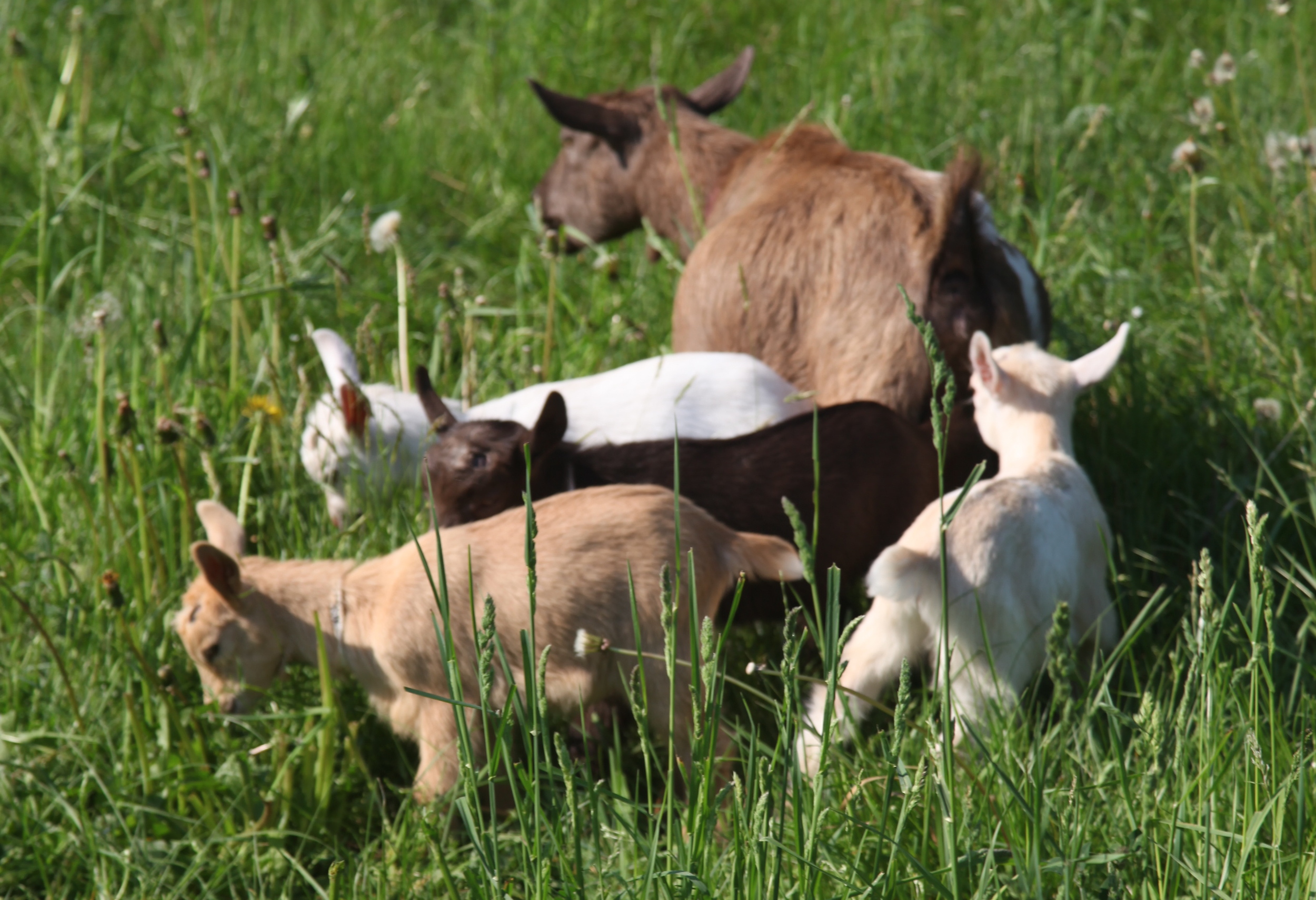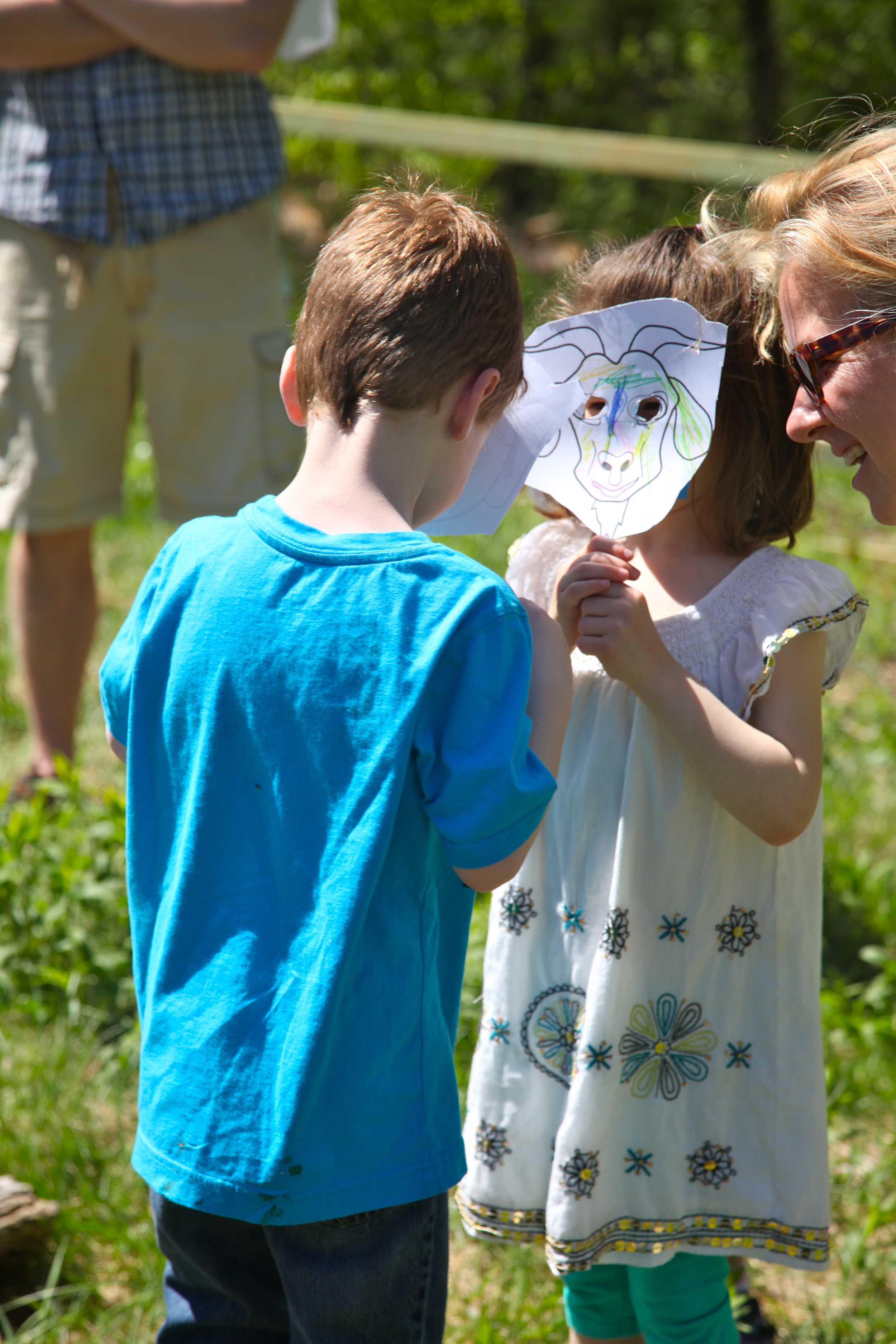Sunflower Farm Cream LLC welcomes farm friends from around the world! Our hope is to be a dairy farm that operates in way people who love animals as much as we do can feel good about. Our Live Cam is just one way we open the farm to visitors so they can understand the unique personality of each herd member. You can support 24/7 Barn Cam and Retired Sunflower Farm Dairy Goats on our No Cull Farm by Clicking the Donate button! Thanks so much!
We hope you enjoy watching these beautiful mamas deliver their kids into the world. The babies stay with us for 8 weeks so there is plenty of time to get to know each one online from their first moments of life to when they hop off to amazing new homes. We’ll have all the cameras up and running by the first due date. We do occasionally turn them off to focus during extra difficult deliveries or to give the vet privacy when they are visiting. Sometimes we also shut the barn cams off during family parties in the barn! ;)
Live Barn CamerAs!
Welcome to the Sunflower Farm Live Barn Feed! Check in often this spring and summer to see what's happening in our barn. Share it with your friends! The kidding dates range from April 9th-July 4th. At any time you might catch one of our pregnant goats giving birth (we've seen many births, but every time it is awe inspiring). You might have a chance to watch the kids playing in their special kid pen after dinner or local (human) kids ages 1-99 and their families meeting the goat kids during visiting hours.
We are so pleased that so many people have become part of our Sunflower Farm community in recent years. Whether you have only visited online or come often in person, you make our lives richer and the farm would not exist without your support. This 24/7 webcam is one more way we would like to open the farm to visitors so that you can see first hand what distinct personalities these animals have and help us to remind others of the debt of kindness we owe all animals we domesticate.
I have been so touched by people's caring and concern for our goats and know others would be too! The stories of people watching it have moved me to tears on many occasions: a group of retired farmers in a nursing home up north who leave it on all day in the common room because they like to go sit and watch and remember what it feels like to be in a barn, an elementary school classroom who watched a birth live during recess, a father stationed on a ship near Korea who watches the goat kids he is buying when he returns from deployment as a way of finding a bit of home and peace so far away, a student who gets "goat time" as a reward for focusing in the classroom, and so many more lovely stories. When one of our goats tipped over the drop cam, and it fell in a bucket of water, despite a tight farm budget, we went right out and got a new one because everyone from city offices around the country said that they might not survive their work day without goats bleating in the background! When it got rained on, a dear farm friend sent us a new Nest Cam to keep the video feed coming! Some technology makes us more human! The experience of the Nest Cam has had that effect on me and others I think.
Please check our Visit Us Page for kid visiting hours if you would like you would like to make a trip to the farm when the cheese kitchen opens late May. We make time throughout the year for free farm visits because we think it is essential for people to feel connected to their food sources. If you would like to make a donation to the farm to support this Open Door Educational approach and our Retired Dairy Goats see donation link above.
Check out the Slideshow ABOVE for 8 Reasons why we don't cull!
We would love our visitors to consider the benefits of No-cull farming.
Sunflower Farm is one of a handful of No Cull commercial dairy goat farms in the country. It is common practice to “cull” or kill goats who do not serve a dairy operation to their fullest capacity. On average, a fourth of a dairy herd is culled for various reasons each year. This might include all newborn bucklings (male baby goats), older dairy goats who are no longer fertile, and any goat who does not produce the desired amount of milk. We know first hand how hard it is for dairy operations to remain solvent. Culling practices can help farms: increase their profit margin, save time, and work towards genetics in a dairy herd that emphasize high milk production. We have consciously chosen another path for our animals.
We are working hard to prove that a farm can be both profitable and humane. We kept second jobs as teachers for the first 9 years so that we could explore ways to generate income on a small farm without the pressure of having to operate in a way that would take all the joy out of what we do. At Sunflower Farm, every goat born on the farm is named and valued and we cherish our animals long after their commercial productivity while providing them the very best feed, medical attention and love.
Farming is hard daily work for all involved. Although the goats enjoy lots of time grazing in the field and enjoying the attention of visitors, they work hard too. The does at our farm take excellent care of their kids. Anyone who has been a parent knows how much work this is! They also hop onto the milk stand eagerly and give us milk so we can provide delicious cheese and other dairy products for our local neighborhood. We see it as part of our contract with our animals to do everything we can to make their life happy and healthy since they give so much to us. We also know that these dams love their kids, and so we find caring homes for any we can't keep (often long before we breed we have a full waiting list). Each kid has a distinct personality and we grow incredibly attached to all of them by the time they leave at 8 weeks. The notion of culling all the bucklings at birth as many farms do as general practice is not acceptable to us. Because they make such incredible outdoor pets, we have had no problem finding homes for all the kids.
Another point to consider is although high producing goats are satisfying in a dairy operation for sure, there are some benefits to a goat (or cow) that is a moderate producer. A growing number of Americans struggle with lactose intolerance. Perhaps this is connected to the push for higher production beyond what is natural for a breed. Butter fat content in milk is highest in animals who make less milk. Nigerians have the highest butterfat content of any goat and make an average of 2-3 cups per milking. As butter fat goes up, lactose goes down. So, the highest producers, also often have the highest percentage of lactose in their milk. Skim milk has the highest lactose content. While we work to improve the genetics of our herd with each breeding, we keep all our dairy goats and feel they all have something to offer on the milk stand.
Lastly, the idea of killing an animal that has spent its life serving our farm is incomprehensible to us. Many of our does have kids and grandkids who live on the farm. When they nap in the afternoon, they curl up in a heap by family, sometimes 3-4 generations all snuggled together. We believe even the old lady goats who can no longer be bred deserve this time with family.
While culling might be necessary in a huge dairy operation, we believe that people who buy local are looking for an alternative which is more in line with how they would treat their own animals. We are proud to be a dairy who can offer you products you can feel great about!
If you feel inspired to be part of a more humane solution, make a donation to the farm. Money will first cover the expenses of providing a live video feed so that more people around the country can feel connected meaningfully to a small farm and hopefully feel inspired to ask more questions about their food and where it comes from. Any remaining donations above and beyond the costs of the 24/7 video feed will then go towards hay, grain, housing and veterinary visits for pet wethers and goats who have been retired for whatever reason from the dairy operation.
Thanks so much for visiting the farm online and we hope we have an opportunity to meet you all in person before too long!

